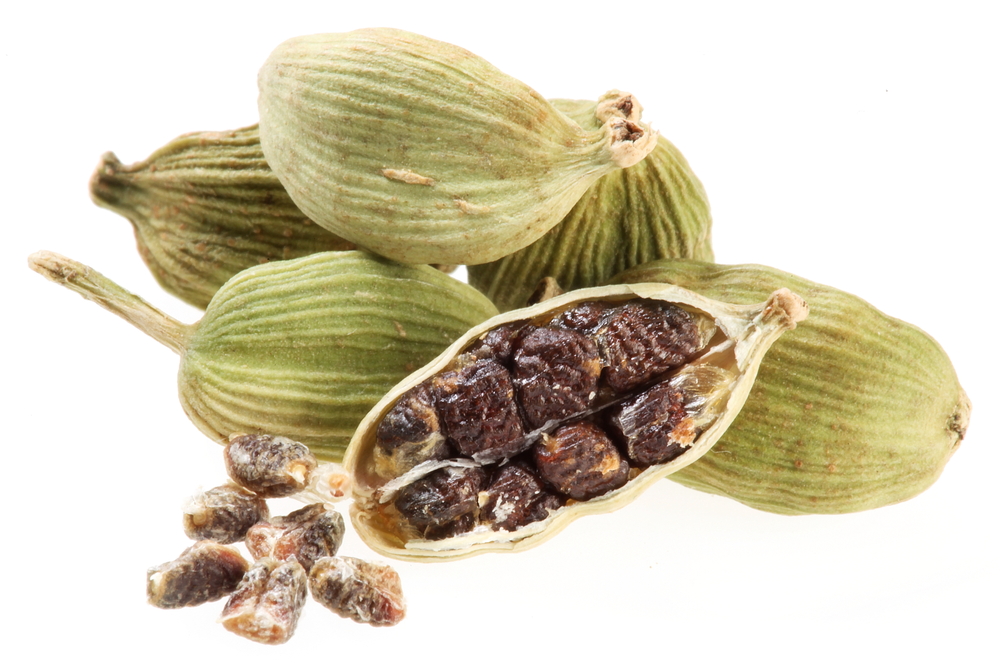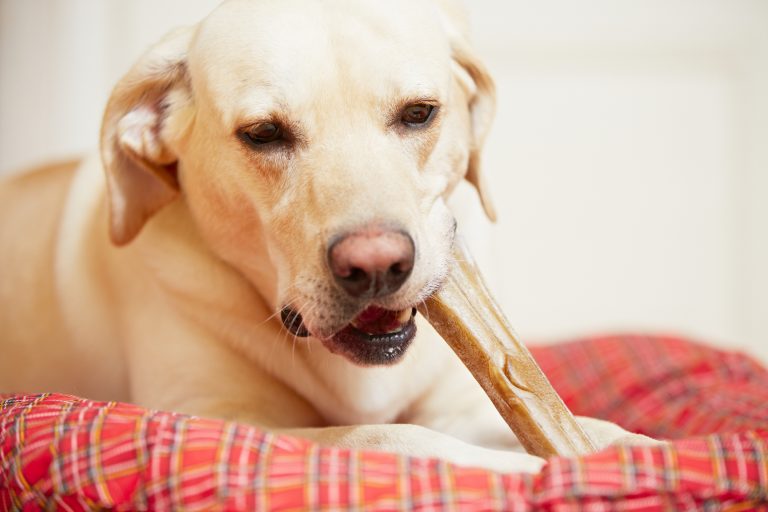Can Dogs Have Cardamom? Is It Safe for Them?
Asian cuisine frequently uses the spice cardamom. It is a frequently used component in a wide variety of recipes, including curries and chai tea. But what happened when it comes to your furry friends? Can dogs have cardamom? Are there any health advantages or even risks to providing cardamom to a dog?
Dogs may consume cardamom in moderation, but they should not be given curries and other meals that contain this spice since they are likely to contain other unhealthy components as well.
When it comes to feeding your dogs, several spices and condiments should be avoided. The following herbs and spices should never be given to dogs: rosemary, salt, and onion powder.
A little green pod known as cardamom is frequently used in curries and other foods. Although it’s mostly regarded as harmless for dogs, it might have a laxative impact. “Can dogs have cardamom?” is a subject that will be addressed in this article. We’ll discuss the advantages of periodically including cardamom in your dog’s food and utilizing cardamom essential oil to alleviate the signs of various medical disorders.
Can Dogs Consume Cardamom?
Cardamom is safe for humans, but it is not safe for dogs in some cases. Cardamom is a spice that contains essential oils, which can cause serious digestive problems for some dogs, as well as irritation to their skin and eyes. In addition, Cardamom can be toxic to dogs if they consume too much.
Therefore, it is best to keep this spice away from your pet. But anything that is given in moderation and the right quantity, can also be useful in many cases.
Cardamom can be bad for dogs because it contains essential oils that can be toxic to them. The essential oils in cardamom can cause stomach upset, vomiting, and diarrhea in dogs if ingested in large amounts. In addition, cardamom can act as a stimulant and can cause hyperactivity in dogs, leading to potential health problems. For these reasons, it is best to avoid giving cardamom to pets, not just dogs.
Though too much cardamom can cause discomfort in dogs, it can also be useful in some situations if given in moderation.
Advantages of Cardamom for Dogs:
So coming back to our question of “Can dogs have Cardamom?” The answer to it depends on the amount you give and your dog’s medical condition. You can think about adding a little cardamom to homemade dog treats or dog food to give them a little more taste. But is cardamom safe for dogs to consume, and does it have any advantages for your pet’s health?
- Cardamom can help to reduce bad breath in dogs. This is due to the antiseptic and antibacterial properties of the spice, which can help to kill bacteria and reduce inflammation in the mouth.
- Cardamom can help to improve digestion in dogs. The spice contains dietary fiber, which can help to improve the movement of food through the digestive tract and help to reduce the risk of constipation and diarrhea.
- Cardamom can help to reduce nausea and vomiting in dogs. The spice contains carminative properties, which can help to reduce nausea and vomiting caused by motion sickness or other digestive issues.
- Cardamom can also help to reduce flatulence in dogs. The spice can help to reduce gas and bloating in the digestive tract.


8 Different Ways to Give Cardamom to Dogs:
If you’re planning to give cardamom to your furball, below are 8 different ways you can feed the spice to them.
#1: Add Cardamom to Your Dog’s Food
Adding cardamom to your dog’s food is one of the easiest and most common ways to give this spice to your pup. Simply mix in a pinch of ground cardamom to your pup’s next meal. Start with a small amount and slowly increase the amount over time if needed.
#2: Bake Cardamom into Treats
Bake cardamom into your pup’s favorite treats. Simply add a small pinch of ground cardamom to the treat dough before baking.
#3: Add Cardamom to a Homemade Dog Food Recipe
Try adding cardamom to a slow cooker or homemade stew. Simply add a pinch of ground cardamom to your pup’s dinner and let it simmer.
#4: Make a Cardamom Powder Ball
Make a cardamom powder ball by combining cardamom powder, honey, and coconut oil. Roll the mixture into a ball and give it to your pup as a treat.
#5: Make a Cardamom Tea
Make a cardamom tea for your pup by adding a pinch of cardamom powder to a cup of hot water. Let the mixture steep for 5-10 minutes before straining it and allowing it to cool. Once cooled, you can offer your dog the tea as a treat.
#6: Cardamom Oil
Cardamom oil can be used as an aromatherapy treatment for your dog. Simply add a few drops to a diffuser and let your dog enjoy the benefits.
#7: Add Cardamom to a Kong toy
Fill a Kong toy with your dog’s favorite treats and add a sprinkle of cardamom powder to the mix. This will add a unique flavor to the toy and keep your dog entertained.
#8: Give Your Dog Cardamom Essential Oil
Essential oil of cardamom has many health benefits for dogs. Add a few drops to your dog’s food, or you can apply it directly to your dog’s coat.
The Recommended Dosage of Cardamom for a Dog:
It’s crucial to be aware that it has a lot of sugar. Therefore, it should only be given occasionally as a precaution. Only a few cardamom pods or a teaspoon of cardamom powder would do for a little dog.
You may add cardamom to your dog’s diet in the form of tea. Start by lightly sprinkling a little bit on their meal. If your dog seems to like the taste, keep an eye on how they respond to it and increase the quantity gradually. Don’t give your dog more cardamom each day than 1/4 teaspoon, though.
In addition, you can offer your dog cardamom pills or capsules. Before giving your dog any kind of supplement, be sure to consult your veterinarian because the dosage will depend on your dog’s size and weight.
It’s preferable to use cardamom powder when putting it in your dog’s food. However, a medium-sized dog may typically get by with one teaspoon. Before introducing any new spices to your pet’s diet, always consult your veterinarian.


Alternatives of Cardamom:
Most plants are beneficial to people, but not all herbs are beneficial to dogs. In case your dog doesn’t enjoy cardamom, you may feed them different herbs.
- Nutmeg:
Nutmeg is a great alternative to cardamom. It has a slightly sweet, nutty flavor and is a great way to add flavor to a variety of dishes. Plus, it’s an effective natural remedy for many ailments like indigestion and arthritis. - Cinnamon:
This spice has a sweet, woody flavor and is often used in baking and savory dishes. It has anti-inflammatory properties and can be beneficial for dogs with arthritis or joint pain. - Cloves:
Cloves have a strong, spicy flavor and are often used in Indian and Middle Eastern dishes. They can help reduce inflammation and improve digestion. - Turmeric:
Turmeric is a powerful antioxidant that has anti-inflammatory and anti-bacterial properties. It can help improve your pup’s immune system and overall health. - Ginger:
Ginger has a strong, earthy flavor and is often used in Asian cuisine. It can help reduce nausea and can help reduce inflammation in the body. - Allspice:
Allspice is a combination of cloves, cinnamon, nutmeg and other spices and has a sweet, spicy flavor. It can help reduce inflammation and can help improve digestion.
Possible Allergic Response of Cardamom
Cardamoms don’t often cause an allergic response in dogs. However, cardamom should not be given to pregnant dogs. You can call your veterinarian if your dog exhibits any allergic symptoms.
Things to Do if Your Dog Consumes Cardamoms:
You should get guidance from your veterinarian if your dog ate cardamom on its own. Depending on how much cardamom was ingested, your vet could advise you to keep an eye out for symptoms of digestive trouble in your pet, such as vomiting or diarrhea.
Here are some things you can do if your dog had consumed cardamoms accidentally:
- Monitor your dog for any signs of vomiting, diarrhea, or other gastrointestinal distress.
- Contact your veterinarian if your dog experiences any of these symptoms.
- Keep your dog hydrated by providing plenty of water.
- If your vet advises, give your dog activated charcoal, which can help absorb toxins from the digestive tract.
- Administer any prescribed medications from your veterinarian.
- Follow up with your veterinarian if your dog does not show any improvement or if the symptoms worsen.
Can Dogs With Diabetes Consume Cardamom?
No, cardamom shouldn’t be consumed by diabetic dogs. Cardamom is regarded as a spice and is heavy in sugar and carbs, which can be dangerous for diabetic dogs. To choose the ideal diet for a diabetic dog, it is important to speak with a veterinarian.







